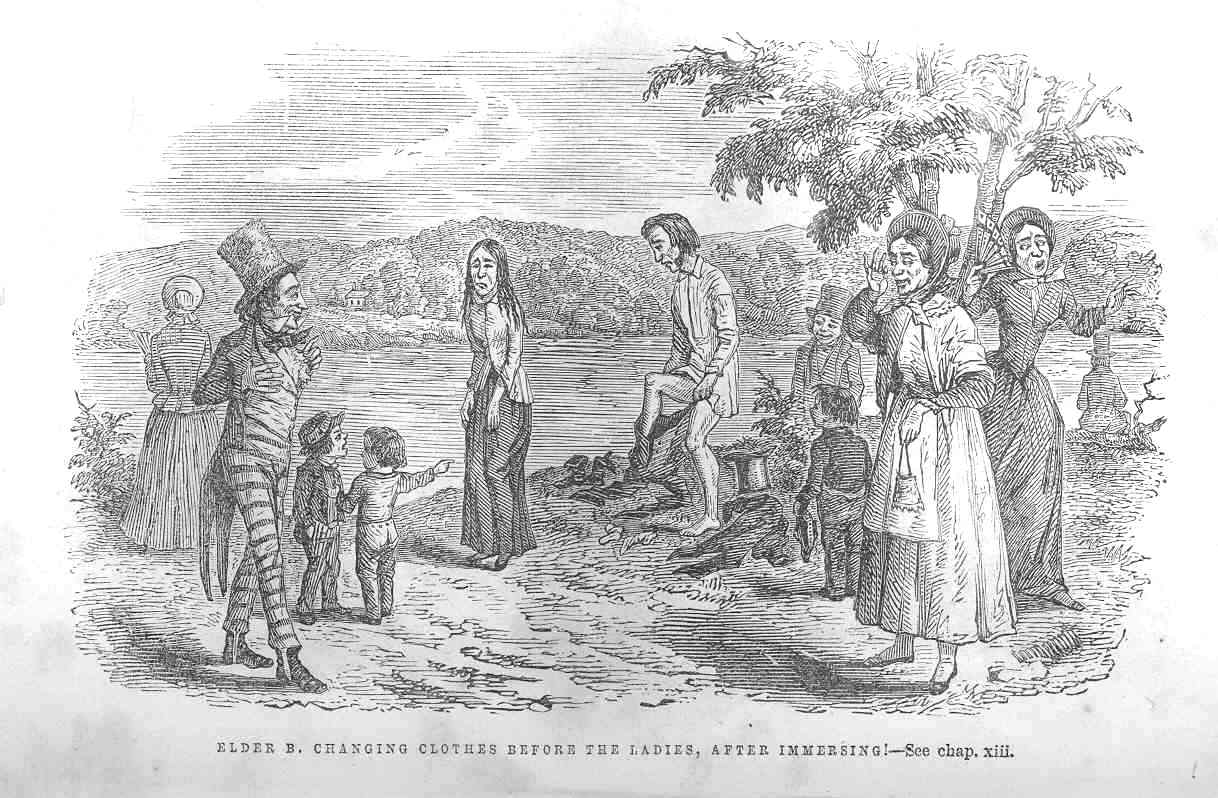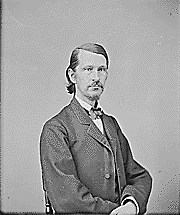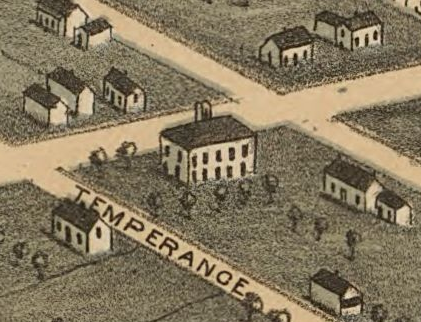|
Leonidas C. Houk
Leonidas Campbell Houk (June 8, 1836 – May 25, 1891) was an American politician and a member of the United States House of Representatives for the 2nd congressional district of Tennessee. Between 1878 and 1891, Houk was elected to seven consecutive terms in the House, during which time he helped solidify the Republican congressional dominance in East Tennessee that remains to the present day.Richard Drake, ''A History of Appalachia'' (Lexington, KY: University Press of Kentucky, 2001), pp. 155-156. Houk fought for the Union Army during the Civil War, and rose to the rank of colonel within a few months.Oliver P. Temple, Notable Men of Tennessee, From 1833 to 1875, Their Times and Their Contemporaries' (New York: Cosmopolitan Press, 1912), pp. 128-136. Largely self-trained as a lawyer, Houk served as a state circuit court judge from 1866 to 1869. Biography Early life Houk was born near Boyds Creek, Tennessee in Sevier County on June 8, 1836. He lost his father at a young ... [...More Info...] [...Related Items...] OR: [Wikipedia] [Google] [Baidu] |
Tennessee
Tennessee ( , ), officially the State of Tennessee, is a landlocked state in the Southeastern region of the United States. Tennessee is the 36th-largest by area and the 15th-most populous of the 50 states. It is bordered by Kentucky to the north, Virginia to the northeast, North Carolina to the east, Georgia, Alabama, and Mississippi to the south, Arkansas to the southwest, and Missouri to the northwest. Tennessee is geographically, culturally, and legally divided into three Grand Divisions of East, Middle, and West Tennessee. Nashville is the state's capital and largest city, and anchors its largest metropolitan area. Other major cities include Memphis, Knoxville, Chattanooga, and Clarksville. Tennessee's population as of the 2020 United States census is approximately 6.9 million. Tennessee is rooted in the Watauga Association, a 1772 frontier pact generally regarded as the first constitutional government west of the Appalachian Mountains. Its name derives from "Tanas ... [...More Info...] [...Related Items...] OR: [Wikipedia] [Google] [Baidu] |
Oliver Perry Temple
Oliver Perry Temple (January 27, 1820 – November 2, 1907) was an American attorney, author, judge, and economic promoter active primarily in East Tennessee in the latter half of the 19th century.Mary Rothrock, ''The French Broad-Holston Country: A History of Knox County, Tennessee'' (Knoxville, Tenn.: East Tennessee Historical Society, 1972), pp. 495-497. During the months leading up to the Civil War, Temple played a pivotal role in organizing East Tennessee's Unionists. In June 1861, he drafted the final resolutions of the pro-Union East Tennessee Convention, and spent much of the first half of the war providing legal defense for Unionists who had been charged with treason by Confederate authorities.Oliver P. Temple, ''East Tennessee and the Civil War'' (Johnson City, Tenn.: Overmountain Press, 1995), pp. 156-157, 172-173, 194-197, 234-235, 340, 349, 400, 474. After the war, Temple promoted agricultural and industrial development in East Tennessee, most notably by assisting ... [...More Info...] [...Related Items...] OR: [Wikipedia] [Google] [Baidu] |
Stalwart (politics)
The Stalwarts were a faction of the Republican Party that existed briefly in the United States during and after Reconstruction and the Gilded Age during the 1870s and 1880s. Led by U.S. Senator Roscoe Conkling—also known as "Lord Roscoe"—Stalwarts were sometimes called ''Conklingites''. Other notable Stalwarts included Benjamin Wade, Charles J. Folger, George C. Gorham, Chester A. Arthur, Thomas C. Platt, and Leonidas C. Houk. The faction favored Ulysses S. Grant, the eighteenth President of the United States (1869–1877), running for a third term in the 1880 United States presidential election. The designation of "Stalwart" to describe the faction was coined by James G. Blaine, who would later lead the rival "Half-Breed" faction during the Garfield administration. Blaine and his political organization formed an informal coalition with the Stalwarts during the presidency of Rutherford B. Hayes,''The Senatorial Career of William P. Frye'', pp. 5–6. supporting patron ... [...More Info...] [...Related Items...] OR: [Wikipedia] [Google] [Baidu] |
Gerrymandered
In representative democracies, gerrymandering (, originally ) is the political manipulation of electoral district boundaries with the intent to create undue advantage for a party, group, or socioeconomic class within the constituency. The manipulation may involve "cracking" (diluting the voting power of the opposing party's supporters across many districts) or "packing" (concentrating the opposing party's voting power in one district to reduce their voting power in other districts). Gerrymandering can also be used to protect incumbents. Wayne Dawkins describes it as politicians picking their voters instead of voters picking their politicians. The term ''gerrymandering'' is named after American politician Elbridge Gerry, Vice President of the United States at the time of his death, who, as governor of Massachusetts in 1812, signed a bill that created a partisan district in the Boston area that was compared to the shape of a mythological salamander. The term has negative conn ... [...More Info...] [...Related Items...] OR: [Wikipedia] [Google] [Baidu] |
Henry R
Henry may refer to: People *Henry (given name) *Henry (surname) * Henry Lau, Canadian singer and musician who performs under the mononym Henry Royalty * Portuguese royalty ** King-Cardinal Henry, King of Portugal ** Henry, Count of Portugal, Henry of Burgundy, Count of Portugal (father of Portugal's first king) ** Prince Henry the Navigator, Infante of Portugal ** Infante Henrique, Duke of Coimbra (born 1949), the sixth in line to Portuguese throne * King of Germany **Henry the Fowler (876–936), first king of Germany * King of Scots (in name, at least) ** Henry Stuart, Lord Darnley (1545/6–1567), consort of Mary, queen of Scots ** Henry Benedict Stuart, the 'Cardinal Duke of York', brother of Bonnie Prince Charlie, who was hailed by Jacobites as Henry IX * Four kings of Castile: **Henry I of Castile **Henry II of Castile **Henry III of Castile **Henry IV of Castile * Five kings of France, spelt ''Henri'' in Modern French since the Renaissance to italianize the name and ... [...More Info...] [...Related Items...] OR: [Wikipedia] [Google] [Baidu] |
William Gannaway Brownlow
William Gannaway "Parson" Brownlow (August 29, 1805April 29, 1877) was an American newspaper publisher, Methodist minister, book author, prisoner of war, lecturer, and politician who served as the 17th Governor of Tennessee from 1865 to 1869 and as a United States Senator from Tennessee from 1869 to 1875. Brownlow rose to prominence in the late 1830s and early 1840s as editor of the '' Whig'', a polemical newspaper in East Tennessee that promoted Whig Party ideals and opposed secession in the years leading up to the American Civil War. Brownlow's uncompromising and radical viewpoints made him one of the most divisive figures in Tennessee political history and one of the most controversial Reconstruction Era politicians of the United States. Beginning his career as a Methodist circuit rider in the 1820s, Brownlow was both censured and praised by his superiors for his vicious verbal debates with rival missionaries of other sectarian Christian beliefs. Later, as a newspaper publi ... [...More Info...] [...Related Items...] OR: [Wikipedia] [Google] [Baidu] |
Radical Republican
The Radical Republicans (later also known as " Stalwarts") were a faction within the Republican Party, originating from the party's founding in 1854, some 6 years before the Civil War, until the Compromise of 1877, which effectively ended Reconstruction. They called themselves "Radicals" because of their goal of immediate, complete, and permanent eradication of slavery, without compromise. They were opposed during the War by the Moderate Republicans (led by President Abraham Lincoln), and by the pro-slavery and anti-Reconstruction Democratic Party. Radicals led efforts after the war to establish civil rights for former slaves and fully implement em ... [...More Info...] [...Related Items...] OR: [Wikipedia] [Google] [Baidu] |
Horace Maynard
Horace Maynard (August 30, 1814 – May 3, 1882) was an American educator, attorney, politician and diplomat active primarily in the second half of the 19th century. Initially elected to the House of Representatives from Tennessee's 2nd Congressional District for the term commencing on March 4, 1857, Maynard, an ardent Union supporter and abolitionist, became one of the few Southern congressmen to maintain his seat in the House during the Civil War. Toward the end of the war, Maynard served as Tennessee's attorney general under Governor Andrew Johnson, and later served as ambassador to the Ottoman Empire under President Ulysses S. Grant and Postmaster General under President Rutherford B. Hayes.Oliver P. Temple, Notable Men of Tennessee, From 1833 to 1875, Their Times and Their Contemporaries' (New York: Cosmopolitan Press, 1912), pp. 137-149. Maynard left his teaching position at University of Tennessee, East Tennessee College in the early 1840s to pursue a career in law, a ... [...More Info...] [...Related Items...] OR: [Wikipedia] [Google] [Baidu] |
Emancipation Proclamation
The Emancipation Proclamation, officially Proclamation 95, was a presidential proclamation and executive order issued by United States President Abraham Lincoln on January 1, 1863, during the Civil War. The Proclamation changed the legal status of more than 3.5 million enslaved African Americans in the secessionist Confederate states from enslaved to free. As soon as slaves escaped the control of their enslavers, either by fleeing to Union lines or through the advance of federal troops, they were permanently free. In addition, the Proclamation allowed for former slaves to "be received into the armed service of the United States." On September 22, 1862, Lincoln issued the preliminary Emancipation Proclamation. Its third paragraph reads: That on the first day of January, in the year of our Lord, one thousand eight hundred and sixty-three, all persons held as slaves within any State or designated part of a State, the people whereof shall then be in rebellion against the U ... [...More Info...] [...Related Items...] OR: [Wikipedia] [Google] [Baidu] |
London, Kentucky
London is a home rule-class city in Laurel County, Kentucky, in the United States. It is the seat of its county. The population was 7,993 at the time of the 2010 census. It is the second-largest city named "London" in the United States and the fourth-largest in the world. It is part of the London, Kentucky micropolitan area. Of the seventeen micropolitan areas in Kentucky, London is the largest; the London micropolitan area's 2010 Census population was 126,369. London is also home to the annual World Chicken Festival that celebrates the life of Colonel Sanders and features the world's largest skillet. History Upon the establishment of Laurel County in 1825, a vote was held to provide for the new area's seat of government. The land offered by John and Jarvis Jackson was selected, along with their suggested name of London, honoring their English heritage.Rennick, Robert. ''Kentucky Place Names''p. 178 University Press of Kentucky (Lexington), 1987. Accessed August 1, 2013. The ... [...More Info...] [...Related Items...] OR: [Wikipedia] [Google] [Baidu] |
Kentucky
Kentucky ( , ), officially the Commonwealth of Kentucky, is a state in the Southeastern region of the United States and one of the states of the Upper South. It borders Illinois, Indiana, and Ohio to the north; West Virginia and Virginia to the east; Tennessee to the south; and Missouri to the west. Its northern border is defined by the Ohio River. Its capital is Frankfort, and its two largest cities are Louisville and Lexington. Its population was approximately 4.5 million in 2020. Kentucky was admitted into the Union as the 15th state on June 1, 1792, splitting from Virginia in the process. It is known as the "Bluegrass State", a nickname based on Kentucky bluegrass, a species of green grass found in many of its pastures, which has supported the thoroughbred horse industry in the center of the state. Historically, it was known for excellent farming conditions for this reason and the development of large tobacco plantations akin to those in Virginia and North Carolina i ... [...More Info...] [...Related Items...] OR: [Wikipedia] [Google] [Baidu] |
East Tennessee Convention
The East Tennessee Convention was an assembly of Southern Unionist delegates primarily from East Tennessee that met on three occasions during the Civil War. The Convention most notably declared the secessionist actions taken by the Tennessee state government on the eve of the war unconstitutional, and requested that East Tennessee, where Union support remained strong, be allowed to form a separate state that would remain part of the United States split from the rest of Confederate Tennessee (a la West Virginia). The state legislature denied this request, and the Confederate Army occupied the region in late 1861.Eric Lacy, ''Vanquished Volunteers: East Tennessee Sectionalism from Statehood to Secession'' (Johnson City, Tenn.: East Tennessee State University Press, 1965), pp. 122-126, 217-233. The Convention first met in Knoxville on May 30–31, 1861, in response to the state government's "Declaration of Independence" from the United States and formation of a military league ... [...More Info...] [...Related Items...] OR: [Wikipedia] [Google] [Baidu] |


.jpg)





